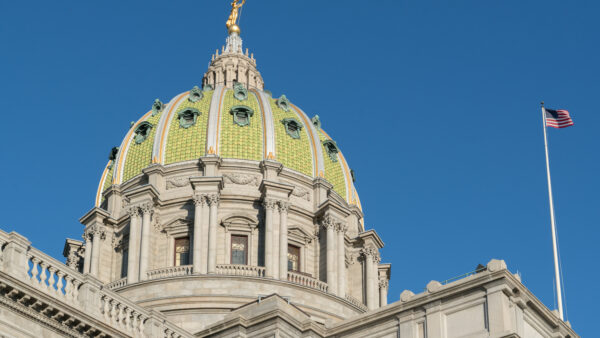
HARRISBURG – Sen. Chris Gebhard (R-48) expressed a multitude of concerns today regarding Gov. Josh Shapiro’s proposed 2024-25 state budget plan.
“First and foremost, spending $3.2 billion more than last year’s historically large budget is entirely unsustainable and unrealistic,” Gebhard said.
Shapiro’s plan calls for a more than 7% percent increase in overall state spending. This level of new spending requires significant tax increases to balance future budgets. The governor’s budget would completely purge the state’s current and future budgetary reserves – including the state’s savings account, the Rainy Day Fund – throughout the next five years.
Because of these strong budgetary reserves, one of the nation’s leading credit rating agencies – Fitch Ratings – upgraded the state’s bond rating from AA- to AA. The state hasn’t held the improved rating since 2014. The upgrade has led to lower debt service costs, saving taxpayers millions of dollars. This is one of the reasons Senate Republicans have led the efforts to build the state’s Rainy Day Fund to historic highs and resist new recurring spending the state cannot afford. Late last year, Moody’s Investor Services and S&P Global Ratings both upgraded Pennsylvania’s long-term financial outlook from “stable” to “positive.”
“Spending all the reserves in our Rainy Day Fund is an extremely bad idea. Senate Republicans have fought for years to bolster our reserves, and this budget wipes out all that hard work,” Gebhard said.
The budget also includes $127.1 million for the governor’s plan to merge the Pennsylvania State System of Higher Education (PASSHE) with the state’s 15 community colleges.
“PASSHE’s failing cost structures and 30% decline in enrollment show the system is too large. The current one-size-fits-all proposal doesn’t allow us to examine each individual school to identify the ones that are succeeding and ones that are failing. Pennsylvania’s community colleges, like RACC, are successful precisely because they are hardwired into their unique local communities and maintain an incredible degree of flexibility and creativity, which I fear they may lose if they get tied into the large statewide system,” Gebhard said.
Additionally, Shapiro is seeking to divert state sales tax revenues to increase mass transit funding by more than $280 million. Philadelphia’s SEPTA system would receive a disproportionate amount of these funds.
“In his budget address, Gov. Shapiro mentioned several other bad ideas, including legalizing adult recreational use marijuana, keeping Pennsylvania in RGGI and eliminating the Keystone Communities Program,” Gebhard said. “However, this is just the start of the conversation.”
Senate Republicans will work during the next several months to examine Shapiro’s budget proposal and search for greater efficiencies. The Senate Appropriations Committee will begin its series of budget hearings to study the budget proposal on Feb. 20.
CONTACT: Alex Gamble


